The initiative hosting Ramadan events for Muslims who live alone
As Muslims enter the last stretch of Ramadan, Maryam Zakir-Hussain joins an iftar for Muslim women seeking community
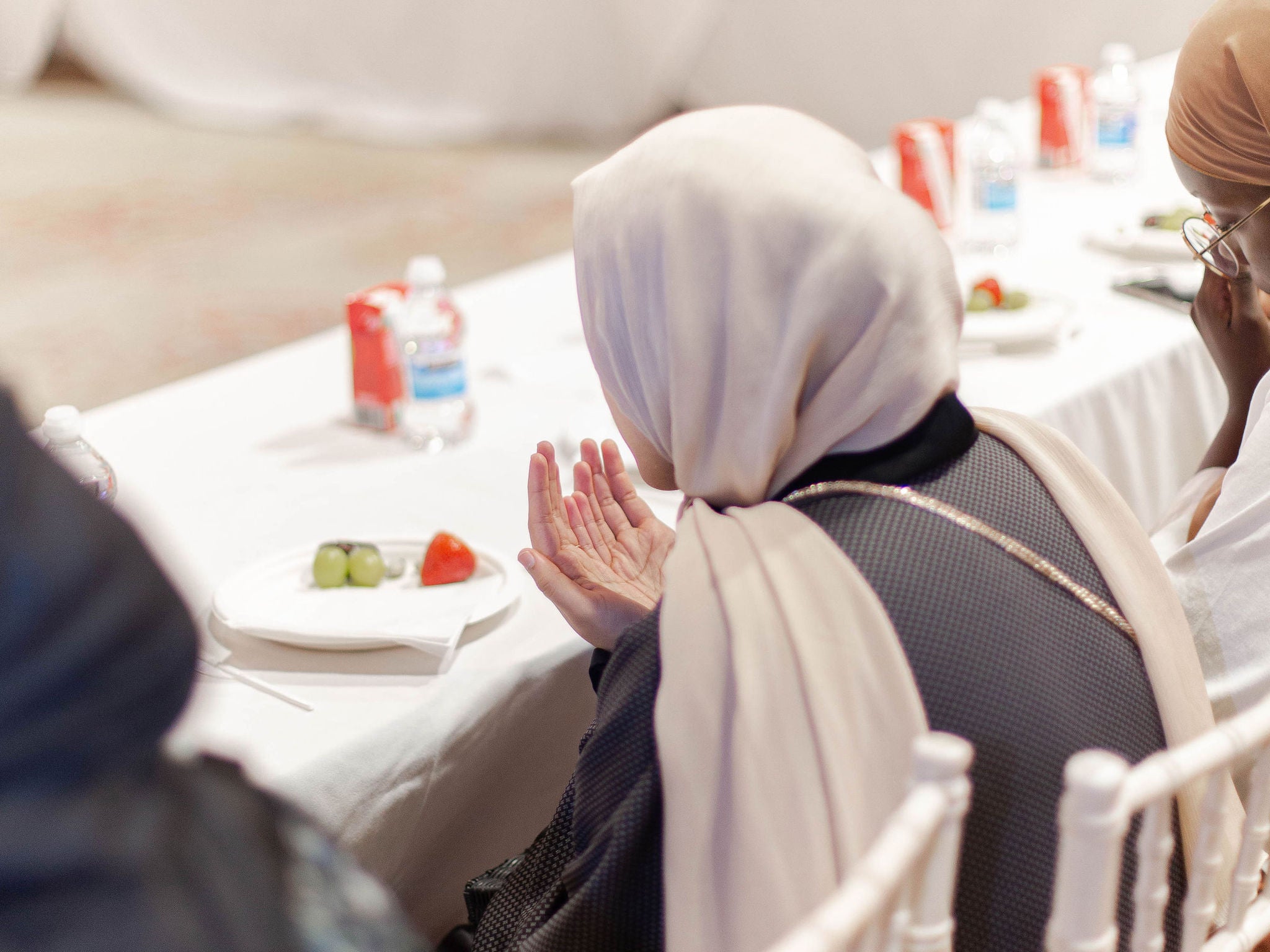
Your support helps us to tell the story
From reproductive rights to climate change to Big Tech, The Independent is on the ground when the story is developing. Whether it's investigating the financials of Elon Musk's pro-Trump PAC or producing our latest documentary, 'The A Word', which shines a light on the American women fighting for reproductive rights, we know how important it is to parse out the facts from the messaging.
At such a critical moment in US history, we need reporters on the ground. Your donation allows us to keep sending journalists to speak to both sides of the story.
The Independent is trusted by Americans across the entire political spectrum. And unlike many other quality news outlets, we choose not to lock Americans out of our reporting and analysis with paywalls. We believe quality journalism should be available to everyone, paid for by those who can afford it.
Your support makes all the difference.When I think of the perfect Ramadan feast, food barely comes into it.
My dinner table during Islam’s sacred month is nothing without my family sitting around me as we wait for the maghrib adhan (call to prayer at sunset).
Fasting is prescribed to Muslims to attain God-consciousness. While we keep our stomachs empty of food and drink between dawn and sunset, we are encouraged to fill our hearts with the divine.
It is also a time of togetherness. The allotted times for suhoor (the pre-dawn meal) and iftar (a meal after sunset) can help even the most unsynced household routine to harmonise.
But for revert Muslims or people who are living alone, Ramadan can be incredibly lonely as they yearn for the company of their loved ones at iftar time.
Thankfully, there are several initiatives such as OpenIftar and the Ramadan Tent Project, which encourage people from all backgrounds, fasting or not, to have iftar together during the holy month.
I was drawn to a women-only event in east London at Ramadan at Regency, offering a safe space for women in the capital who are spending the month alone.
As I stepped into the grand yet cosy hall, I was welcomed by volunteers like I was a long-lost family member. Warm hugs enveloped me, while the faces of strangers lit up as they welcomed me with salaam (greeting of peace).
I took a seat as a volunteer read out supplications from a list of prayers thoughtfully laid out for the guests. The moment before you open your fast is a special time, as we believe supplications are accepted from God.
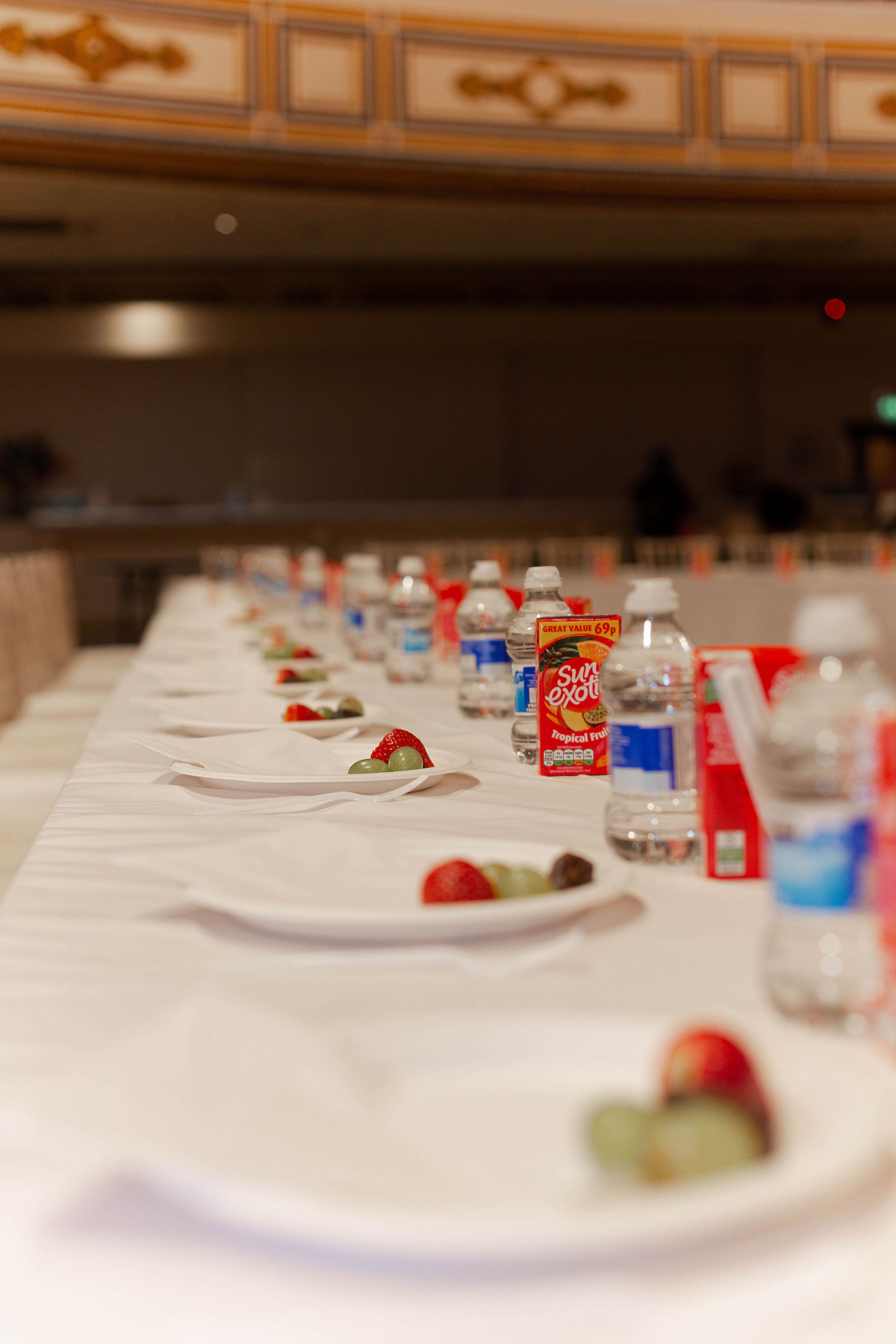
When I open my fast at home with my family, everyone takes their place at the table in good time to have their own silent conversation with God. It is a time to ask for all your heart’s desires and to reflect on what we have been blessed with.
It is only the call to the sunset prayer which can pierce this elevated silence. We then dutifully took a bite into the dates that had been placed before us, completing another day of fasting.
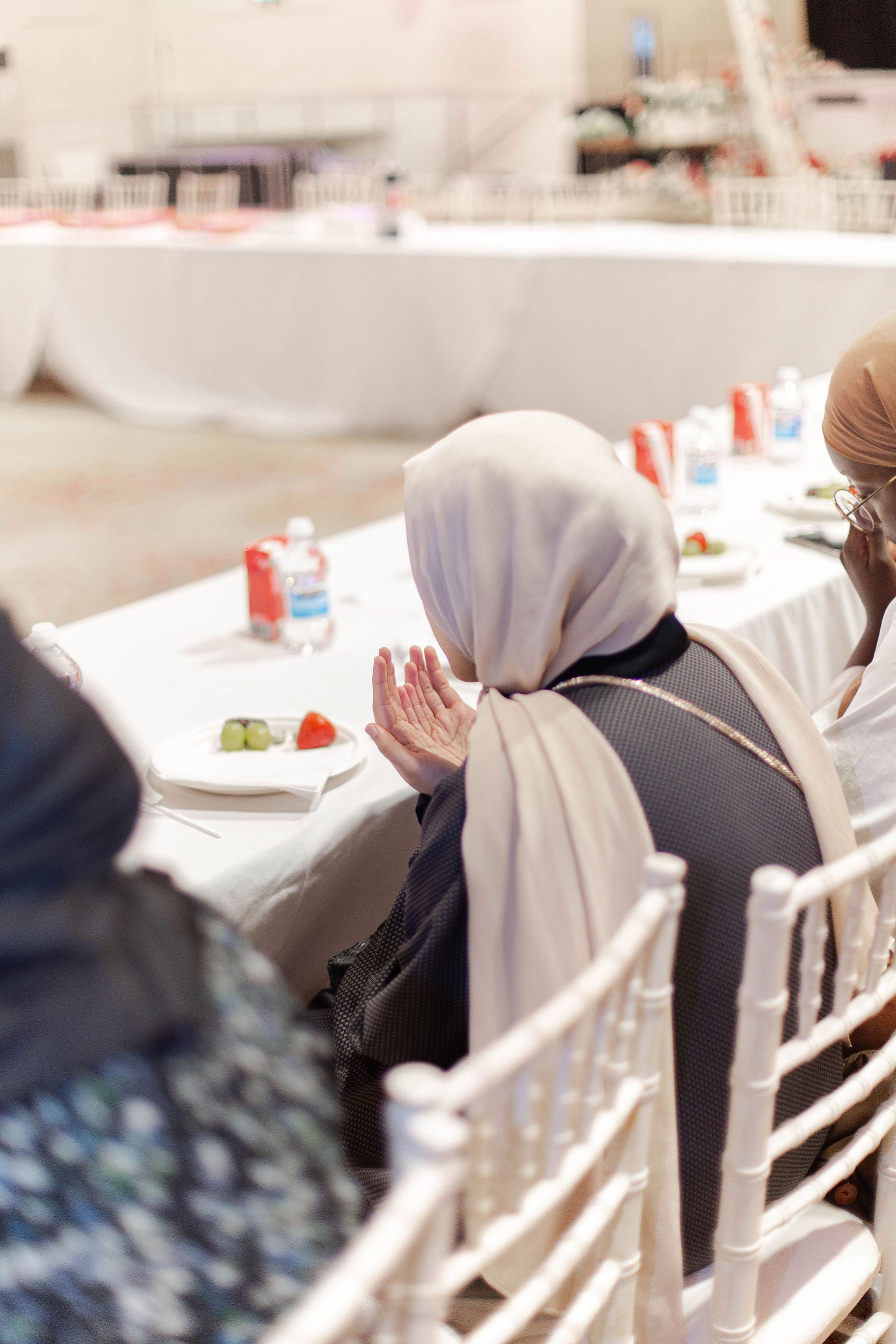
The weekly iftar initiative began in 2022 after founder Mish Taznin experienced a low period in her life.
Hoping the initiative would be an anecdote to her sadness, she says: “I wanted to do something to be in service to others to try to bring happiness to myself.”
Deciding to reach out to Muslim reverts and women spending the month alone, she was driven by the thought: “Nobody deserves to be alone in Ramadan.”
Mish searched the hashtag #aloneinthecity and found the audience she had been seeking.
“From the beginning, this has always been about companionship,” she explains. “Here, you build bonds by coming back to the same place with the same core people every week.”
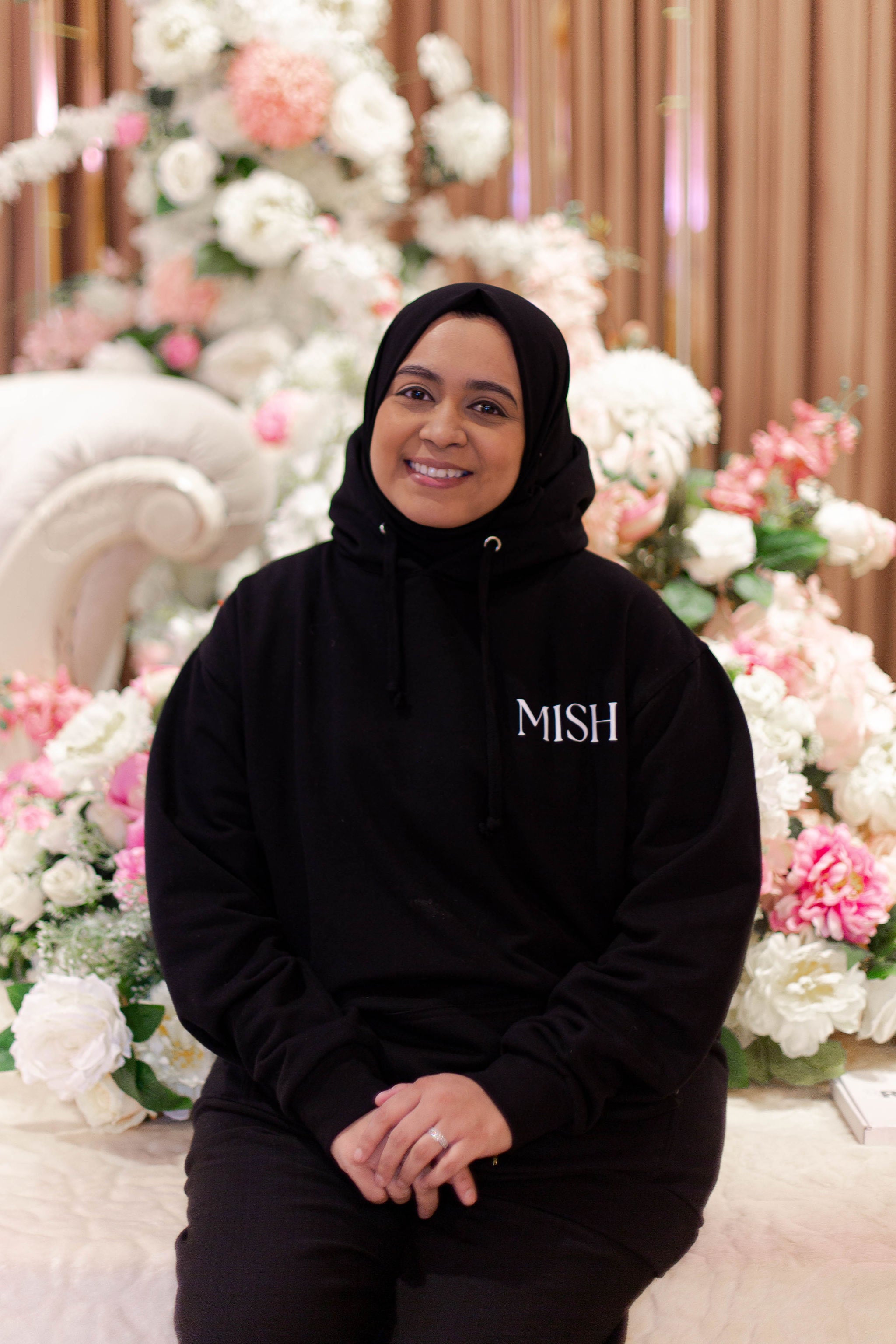
The longing for a community was evident in the effort the women made to attend. Diara Cisse, a business student from Senegal, travelled an hour to come to the East London hall.
“It’s very difficult. I do iftar alone most of the time,” the 21-year-old says. “But being here makes me feel like I am at home.”
The student from London South Bank University says having a community helps to remind her of her faith and who she is.
“Seeing Muslim women around me wearing the hijab gives me strength. It’s such a wonderful feeling.”
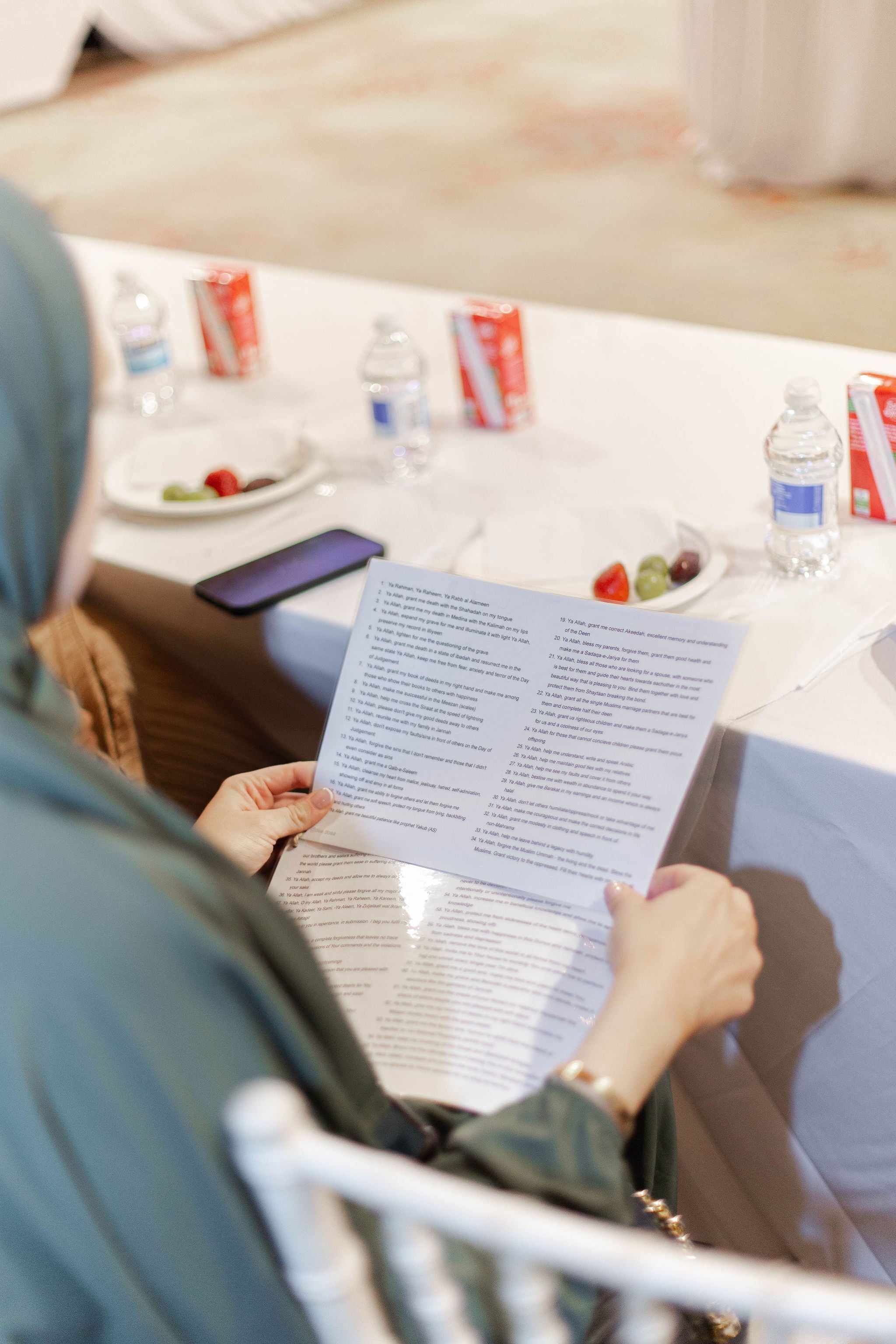
Aizat Nordin, from Malaysia, says also found a “home away from home” at the weekly iftar.
The 37-year-old says: “Most of the time, I have iftar on the way home from work on a train. Coming to this event is nice because you get to build your own community.”

One woman, who did not wish to be named, says finding her own community at the iftar helped her break out of a dark spiral after having her second child.
“Over the last couple of months I’ve felt so alone, I felt like I am losing who I am,” she says. “I had no social life or adult conversation. There would be times where I wouldn’t even brush my hair and just stay in pyjamas all day. I was so disconnected from the outside world.
“Coming to Ramadan at the Regency was my first step to getting out of this bubble and being part of something other than a mum juggling 100 things all at once.
“It is nice to meet new people and be part of a new family here.”
The free iftar is hosted by The Royal Regency in Newham every Tuesday of Ramadan. If you wish to attend, message @ramadanatregency on Instagram to register your space.



Join our commenting forum
Join thought-provoking conversations, follow other Independent readers and see their replies
Comments